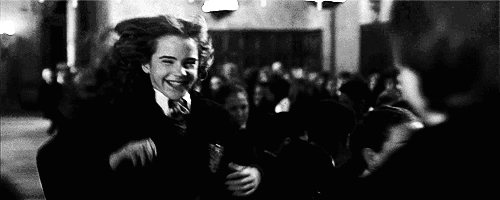Why It’s Important Albus and Scorpius Aren’t in Love
There has been building discontent in the Potter fandom surrounding the relationship between Albus Potter and Scorpius Malfoy in Harry Potter and the Cursed Child. The argument is that Albus and Scorpius are too close to be “just friends,” that there is an undercurrent of romantic longing, and that JKR is letting the fandom down by denying us this relationship. However, I truly believe that JKR has given our fandom a gift and is doing her bit to bust male gender stereotypes in a bid to help teens across the world feel comfortable having close friendships without judgement. It’s concerning that males are more susceptible to mental illness and suicide. One of the theories is that this is because males feel that it’s not masculine to talk about feelings, and letting people know their inner turmoil is seen as a weakness. Having strict gender expectations is hurting every generation, and maybe it’s time we start to break down the traditional gender stereotypes!
Let me be clear, there is definitely an under-representation of LGBT within the series, and I am not denying this. But I think the friendship, closeness, and platonic affection shown between Albus and Scorpius highlights that close, male friendships are also an under-represented relationship that needs to addressed. I have split this theme into two posts – “Why It’s Important that Albus and Scorpius Aren’t in Love” and “Harry and Ron vs. Albus and Scorpius: Which Friendship Is More Important?”
The platonic relationship between Scorpius and Albus is hugely important in its own right. They don’t conform to traditional stereotypes of masculine relationships, and this should be celebrated.
The first element of their friendship arises as they find familiar ground from the reputation of their family name. Albus and Scorpius need each other to “survive” being an outsider at Hogwarts:
But I don’t need a Ron and Hermione – I’ve – I’ve got a friend, Scorpius, and I know you don’t like him but he’s all I need” (CC 24).
Later on in this scene, Albus learns of the death of Scorpius’s mother. This is the first time that these friends really start to open up to each other. According to Professor Rebecca Feasey, author of Masculinity and Popular Television, “The point here is that if men are to develop in-depth male friendships they would have to ‘risk rejection and vulnerability by opening up to friends and by expressing emotions and feelings’ which they are, society tells us, ill-equipped to do…” (22). Scorpius talking to Albus about his mother’s death shows that their relationship is more than superficial; he’s willing to be vulnerable in order to form a deeper connection. Not only is Scorpius embracing his friendship with Albus, but he is also expressing another dimension to male friendship that is not usually expressed in media texts.
The next noticeable step in their friendship is in their fourth year. In Act 1 Scene 10, the stage directions note this change.
Albus hugs his friend. With such fierceness. They hold for a beat. Scorpius is surprised by this” (CC 55).
David Bentall, a researcher of gender studies, commented in Masculinity and Popular Television that “the one thing that ‘keeps men, especially young men, from pursuing in-depth male friendships today is the modern cultural inference that any close male relationship must have a sexual dimension’” (27). I can’t speak for everyone, but I will hug my friends regardless of what gender they are, and without worrying whether the people around me are wondering if there is a romantic element to our relationship. It should be the same for males! If it is acceptable for girls who are friends to hug, then it should be the same for boys.
It should be celebrated (and encouraged) that males can have close, intimate friendships without the fear of being emasculated or called gay. Finding yourself and being comfortable “being you” is a teenage struggle. Being called gay should not be a derogatory term, and having certain characteristics should not mean that you are lesser of a man, and this is what I believe the friendship is challenging. Friendship is something every human being needs, and I feel that JKR has given teens all over the world a chance to express themselves as they wish. Another wonderful lesson that JKR has taught us through the power of Potter is that friendship and love (in particular platonic love) is a powerful thing.
For me, the relationship between these two friends is crucial to the development of modern media texts. Have I taken this too far? Let me know in the comments below!



